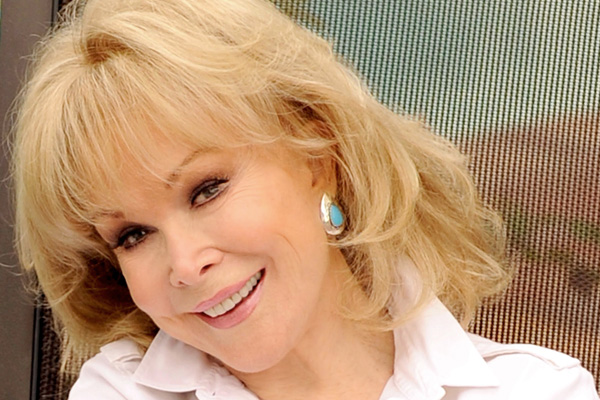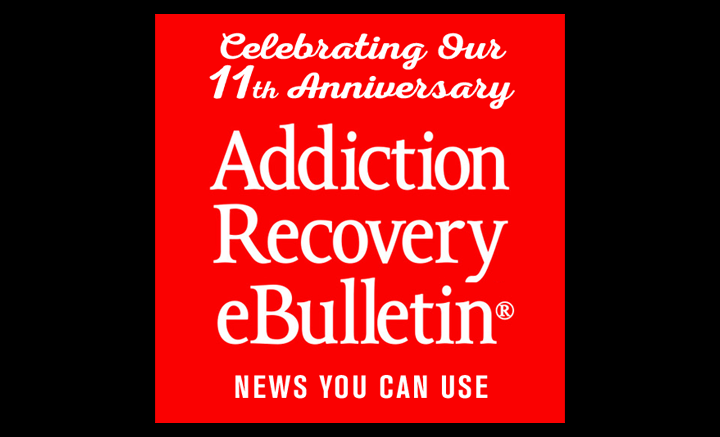
- Home
- Archives
- Articles
- Editorials
- When All Else Fails … Florida Can Help
- Florida’s Marchman Act Works
- Black Pregnant Women Unfairly Tested for Drug Use
- My Son Was Addicted and He Refused Treatment
- Hollywood Film and Television Icon, Barbara Eden, on Addiction, Loss, and Keeping a Legacy Alive
- OPINION: America Has Lost the War on Drugs
- An Interview With Hockey Legend Justin Bourne
- An Interview with Mary Beth O’Connor
- Is AA Sexist?
- A Day at The Wall
- The Redemptive Power of Creativity
- NEW BOOK Excerpt: HOME IS WITHIN YOU by Nadia Davis
- 14 Years of IN THE ROOMS
- Book Excerpt: Evil Incarnate: Purdue Pharma & Oxycontin
- Why Governor Newsom Must Pass SB999
- Is Tech Addiction Really a Disease?
- Recovery’s Missing Link
- Rochester University Opiate Symposium – May 20, 2022
- SUD Talks Speech with Leonard Buschel
- A Fond Farewell by Christopher Dale
- Treating Drug Dealers Like Serial Killers
- The Rise of the “Sunshine State Shuffle” by Christopher Dale
- Shattering the Silence with Perry Gaidurgis
- Joint Pain: Hard Facts Point to The Joint Commission’s Complicity in the Opioid Crisis
- Brain Based Treatment for Recovery, Relapse Prevention and Improved Mental Health
- Racism Is An Addiction…In The Recovery Industry
- Pill Mill-ions: America’s Lucrative, Criminally Resilient Quasi-Legal Drug Dealing Enterprise
- Have AA Meetings Become Superspreader Events?
- Healing Begins Within the Family – New Book by Dr. Louise Stanger
- The D-Word
- “Love Without Martinis” a book by Chantal Jauvin
- The AA Reopening Two-Step
- Virtually Sober: When AA Went Away, an original story
- A Groundbreaking Groundbreaking – Betty Ford Center’s $30 million expansion
- Higher Power Outage: Zoom Meetings and Spirituality
- Global Sober Books: True Works of Genius
- Once We Were Slaves…12 Steps to Freedom
- Has COVID-19 Killed AA Anonymity?
- Hazelden Betty Ford Appoints Dr. Joseph Lee, First Physician, Non-White, and Youngest President/CEO
- This Message Will Self-Destruct: Snapchat and the Tragic Death of 16-year-old Samuel Chapman
- Day Trading Can Be Addictive
- Six Reasons AA Zoom Rooms Are Inferior to In-person Meetings
- Happy News Year Letter from the Editors
- Review
- Holiday 2020 – Letter from the Editor
- No Frothy Emotional Appeals Here – Just Depth and Weight
- 40 Years Later: John Taylor of Duran Duran Looks Back at The Beatles and Their Legacy
- The Perils of Online 12 Step Meeting Engagement
- Shorts are a Big Deal at the Reel Recovery Film Festival
- Review
- How to Recognize Teen Cyberbullying
- These are SOBERING TIMES: RICKY BYRD
- Is This 55-Year Old Antiviral Drug the Cure For Covid-19?
- Marc Malkin
- Fabian Quezada-Malkin
- Chasing the News…stone cold sober
- Leonard Buschel: Editor/Publisher
- William Cope Moyers
- Dr. Tian Dayton
- Tio Hardiman
- Ryan Hampton
- Alonzo Bodden, Comedian
- Cliff Brodsky: The Man Who Knew Too Much And Too Little
- Saturday Night at the Movies
- BURL’S BEAT –DIGEST THIS, JUNE 9, 2020
- BURL’S BEAT – DIGEST THIS, JUNE 2, 2020
- Zachary Quinto Has an Attitude of Gratitude
- BURL’S BEAT – Digest This!
- FEAR AND COURAGE IN THE TIME OF COVID-19
- eBulletin Original – Courtney Friel
- In The Rooms Offers Live Online Addiction Recovery Meetings for Those at Risk from COVID-19
- Letter from the Editor as we begin our 7th Year.
- From Woodstock to Betty Ford to 25 Years Clean and Sober: What a Long strange trip it’s been…
- The Landscape is changing…
- Conference Like No Other
- US District Court Lawsuit
- Burl Barer – Film Review
- Burl Barer – Fellowship
- Body Brokering
- Interview with Leonard Buschel by William White
- The Lawsuit Has Ended in a TKO
- Footprints in the Sand
- Recovery Centers of America
- Dr. Gabor Mate Critique
- Chatterproof
- On Quitting Weed at Age 78
- Tom Hayden Tribute
- Clinician’s Corner – Zach Dorfman
- Subscribe
- Fan Mail
- PROFILES
- Jessica Gorton: Person of the Week
- Anne Elizabeth Lapointe: Person of the Week
- William C. Moyers: Person of the Week
- TJ Woodward: Person of the Week
- Maia Akiva: Person of the Week
- Aleksa Bembnista: Person of The Week
- Q&A with Award-Winning Filmmaker, Dianne Griffin
- Q&A with Filmmaker Adriana Marchione
- Q&A with Evan York
- Q&A with Ted Perkins
- Q&A with Adam Nimoy
- Q&A with David Whitesock, Founder & CEO, Commonly Well
- Q&A with Writer/Performer, Sigute Miller
- Executive Corner with David Brian Green
- Q&A with Bridget Camacho Clinical Director of The Foothills
- Q&A with Jackie Lapin, author & founder of Speakertunity
- Q&A with Claudia Schwarz MFT, Nat’l Director of Outreach for J. Flowers Health
- Q&A with Andrea Ashley, Creator of the Adult Child Podcast
- Q&A with the Secret Drug Addict
- Q&A with Bruce Boardman: CEO of Social Model Recovery Systems
- Q&A with Chantal Jauvin, author of LOVE WITHOUT MARTINIS
- Q&A with Recovery Strategist/Podcast Host, Fay Zenoff
- Q&A with CEO of Recovery T’s n’ Things, Peter Werth
- Q&A with Bobbi Jo Reed: Founder of Healing House in Kansas City
- Q&A with Co-Founder of Next Level Recovery, Amanda Marino
- Q&A with Best-Selling Author Amy Dresner
- Q&A with Author & Interventionist David Marion
- Q&A with Star of Coronation Street, Kevin Kennedy
- Q&A with Actor/Comedian, Stevie Mack
- Q&A with Founder of A New PATH, Gretchen Burns Bergman
- Q&A with Founder of Herren Wellness, Chris Herren
- Q&A with Allen Berger, PhD
- Q&A with publisher of Keys to Recovery, Jeannie Rabb-Marshall
- Q&A with CEO of Film Festival Flix, Benjamin Oberman
- Q&A with Anonymous, Artist
- Q&A with Joan Borsten filmmaker & recovery advocate
- Q&A with Lisa Hower of Hower Lodge
- Q&A with filmmaker Paul Steinbroner
- Q&A with Chet Hower of Hower Lodge
- Q&A with Executive Joey Carson
- Q&A with filmmaker Christina Lauren Beck
- Q&A with author and recovery coach, Laura Martella
- Q&A with Rock ’n Roll Hall of Famer Ricky Byrd
- Q&A with Dr. Jamie Marich
- Q&A with Producer of LOCKDOWN: Bob Messinger
- Q&A with Angelo Lagares
- Q&A with Tommy Rosen
- Q&A with Courtney Friel
- Q&A with Laura Robbins
- Q&A with Ken Pomerance
- Q&A with Ron Tannebaum
- Q&A with Author and Advocate Anthony Brown
- Q&A with Dr. Louise Stanger
- Q&A with Cara Sandweiss
- Q&A with Jay Crosson
- Q&A with Jennifer Gimenez
- Q&A with Tammy Lofink
- Q&A with Rob Lohman
- Artist’s Corner – Elizabeth Narayan
- eBulletin Original – Courtney Friel
- Q&A with Barbara Nicholson Brown
- Q&A with Tim Ryan
- Interview – Sherry Gaba
- Executive Corner – Allison Harden
- Artist’s Corner – Coach Jake
- Executive Corner – Roland Williams
- Executive corner – Ester Nicholson
- Executive Corner – Sabrina Acatrinei
- Executive Corner – Renee Baribeau
- Executive Corner – Doug Bopst
- Executive Corner – Leonard Buschel
- Executive Corner – Kat Cross
- Executive Corner – Anna David
- Executive Corner – Dr. Joe Desanto
- Executive Corner – Mike Gerstein
- Executive Corner – Morgan Gliedman
- Executive Corner – Ryan Hampton
- Executive Corner – Steven Herndon
- Executive Corner – Richard Jones
- Executive Corner – Howard Josepher
- Executive Corner – Michael King
- Executive corner – Jack Kline
- Executive Corner – Anne Elizabeth Lapointe
- Executive Corner – Rynda Laurel
- Executive Corner – Nadine Lewis
- Executive Corner – David Lisonbee
- Executive Corner – Cerves T. McNeill
- Executive Corner – Paul Moen
- Executive Corner – Damien Ross
- Executive corner – Ahbra K Schiff
- Executive Corner – John Shinholser
- Executive Corner – Gary Stromberg
- Executive Corner – Ron Tannenbaum
- Executive Corner – Brandon Welsh
- PROFILES
- HELP
- Advertise
Hollywood Film and Television Icon, Barbara Eden, on Addiction, Loss, and Keeping a Legacy Alive


